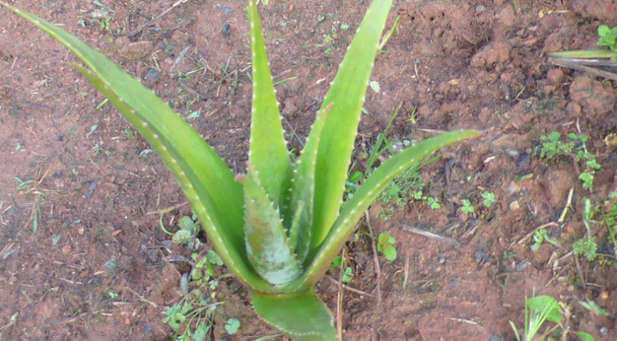Many people know that aloe vera is good for the skin—that’s why it’s found in products ranging from moisturizers to soaps to personal care products. But the plant is also a superfood when ingested, research shows.
In fact, aloe vera is loaded with vitamins and minerals, 20 of the 22 amino acids needed by humans, health-boost fatty acids, and a host of enzymes and compounds that help the body fight bacteria, viruses and fungi.
Along with being a salve for wounds, burns, and skin disorders, aloe vera has been hailed as a natural powerhouse in combating a variety of other ailments including diabetes, heart disease and cancer.
The ancient Egyptians called aloe vera the “plant of immortality,” and the Greeks considered it a universal cure. Not all of the health benefits historically attributed d to aloe vera been substantiated scientifically, but studies leave little doubt that the plant has potent health properties when used properly.
“Aloe vera is quite an incredible medicinal plant full of nutritional benefits,” says registered holistic nutritionist Laura Dawn. “Humans have used aloe therapeutically for over 5,000 years—and that’s a long-standing track record.”
Most of the good stuff is packed into the gel of the plant’s fleshy green leaves and is generally taken via capsule supplements or as a juice. It’s a great source for immune system-boosting vitamins A, C, and E. It is also one of the few plant-based sources of vitamin B12, which, along with its folic acid and choline content, is good for your brain and nervous system. Furthermore, aloe vera helps the absorption of both water- and fat-soluble vitamins, so your body can make better use of the nutrients.
The list of minerals in aloe vera includes calcium, chromium, copper, magnesium, manganese, potassium, selenium, sodium and zinc—all of which help to keep your metabolism purring along. The vitamins and minerals also work together to reduce inflammation and fight destructive free radicals.
As a prebiotic, aloe vera is extremely good for your gut. It nourishes the “good” bacteria in your digestive tract to help optimize your microbiome—the balance of healthy microbes in your intestines. Numerous studies show that your gut flora is a key factor in maintaining good overall health and a high-functioning immune system.
If you suffer from chronic constipation, aloe vera may be the answer. Between the outer covering of the leaf and the gel, there is a layer of sticky, yellow material containing compounds called anthraquinones. They are natural laxatives that help move food through your system by increasing intestinal water content, stimulating mucus secretion, and enhancing intestinal peristalsis.
Aloe vera also contains nine enzymes that boost immunity and help maintain a healthy pH balance in the body. Furthermore, it’s known to reduce insulin resistance, a marker for diabetes.
And let’s not forget what aloe vera does for your skin, even when ingested.
“If you have a tendency toward dry skin or other skin issues including psoriasis, you can help promote healing from the inside out by choosing foods that are anti-inflammatory, like aloe juice,” notes registered dietician Wendy Bazilian, author of The SuperFoodsRx Diet.
Keep in mind that aloe vera should never be taken internally without first consulting your physician. Its potent blend of compounds can cause adverse reactions from allergies or medications. And its laxative effects can cause diarrhea, dehydration and a loss of potassium.
Since aloe vera can reduce blood glucose levels, diabetics need to monitor their numbers closely and adjust their medication accordingly. And experts say pregnant women should avoid it altogether. If you do decide to add aloe vera juice to your health regimen, be sure to get one that is extracted from the gel part of the plant only. Whole leaf aloe vera juice can be toxic.
“This plant is incredibly medicinal, yet there are some cautions against long-term use,” notes nutritionist Dawn. “Just because a little is beneficial doesn’t mean that a lot is more beneficial. This is a very potent plant and should be used with a level of respect.” {eoa}
For the original article, visit newsmaxhealth.com.











































